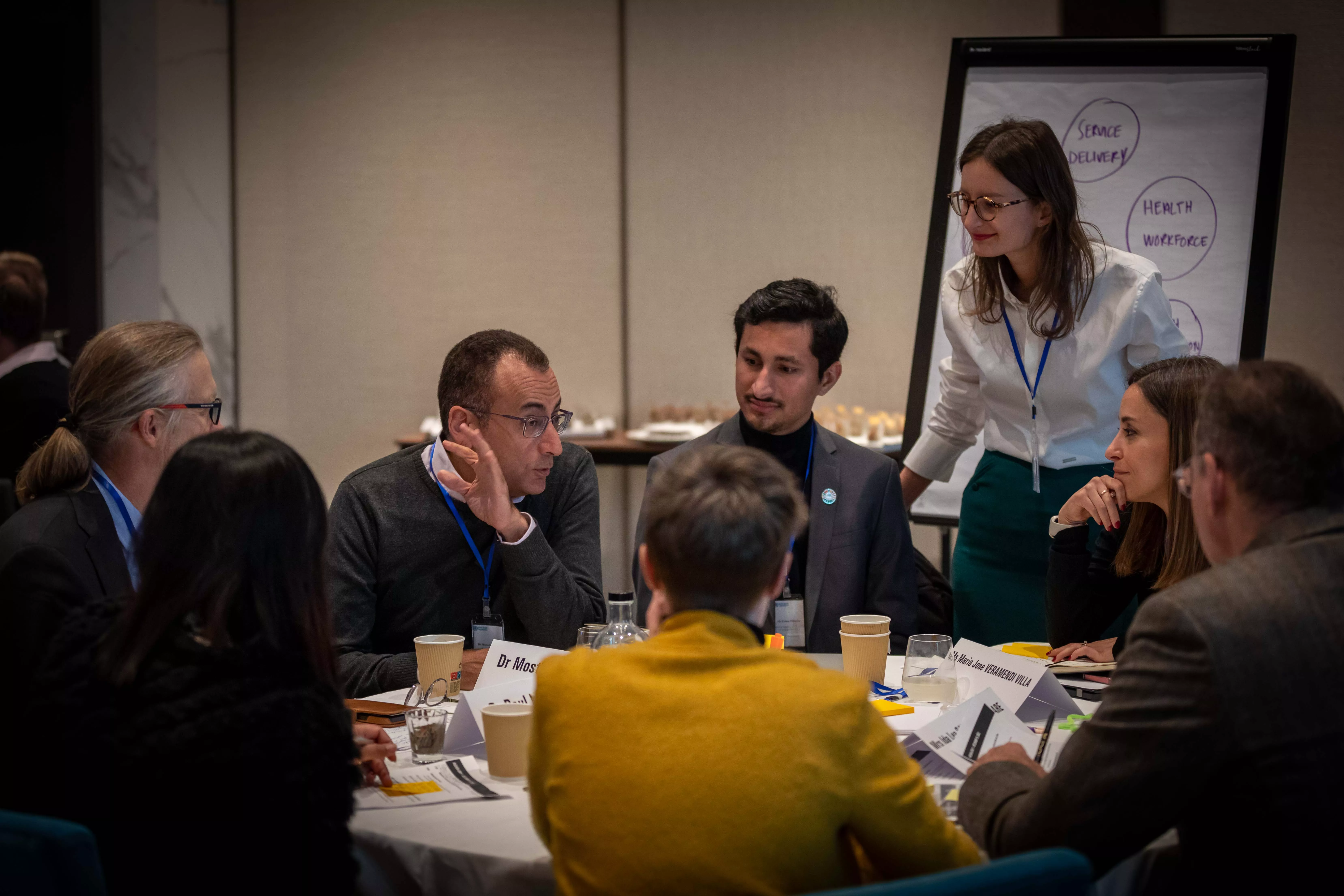Working Groups

Our Network Working Groups are critical for driving our practicable and conceptual priorities forward in accordance with the GNACTA Strategic Workplan.
Working Groups are developed on a needs basis in consultation with the GNACTA Steering Group.
Check back regularly for updates!
Current, existing Working Groups of the GNACTA include:
Working Group 1: Strategic Engagement
Building on success in 2023 at the World Health Assembly in May, the UN HLMs within the framework of the UNGA in September, and the UNCAC Conference of States Parties in December, this Working Group has been extended for the 2024 period. Primary engagement targets currently include the International Anti-Corruption Conference in June, and the Health Systems Global Research Symposium in November. Should you be aware of additional engagement targets that GNACTA should prioritize, please reach out to the Secretariat.
Contributors to this Working Group include Norad, WHO, UNODC, OHCHR, USAID, World Bank, UNDP, UN Global Compact, U4 Anti-Corruption Resource Centre, the London School of Hygiene & Tropical Medicine, and Transparency International Global Health.
Working Group 2: Evidence & Research
Corruption-related losses undermine the efforts countries are making to meet their own national health goals, but also hinders progress on Sustainable Development Goal 3 for a healthier world and harms the prospects for reaching the globally-endorsed aspirations of Universal Health Coverage (UHC).
Research on corruption in healthcare is limited when it comes to empirical cost estimates. Few studies generate empirical data on the financial cost of corruption in healthcare systems. It is important to understand both the nature of the problem and to quantify it. This Working Group sets out to:
-
Strengthen the evidence base through tailored technical tools to measure the financial cost of corruption in health and its impact on health outcomes
-
Develop tailored guidance with an emphasis on efficiency gains, better access and equity through ACTA
-
Foster collaboration between health and anti-corruption authorities at global, regional and country levels to support structural reforms to mainstream ACTA in health for enhanced efficiency, better access and improved equity and progress towards SDG 3
Contributors to this Working Group include, WHO, Norad, USAID, the U4 Anti-Corruption Resource Centre, the London School of Hygiene & Tropical Medicine, Central European University, and Transparency International Global Health.